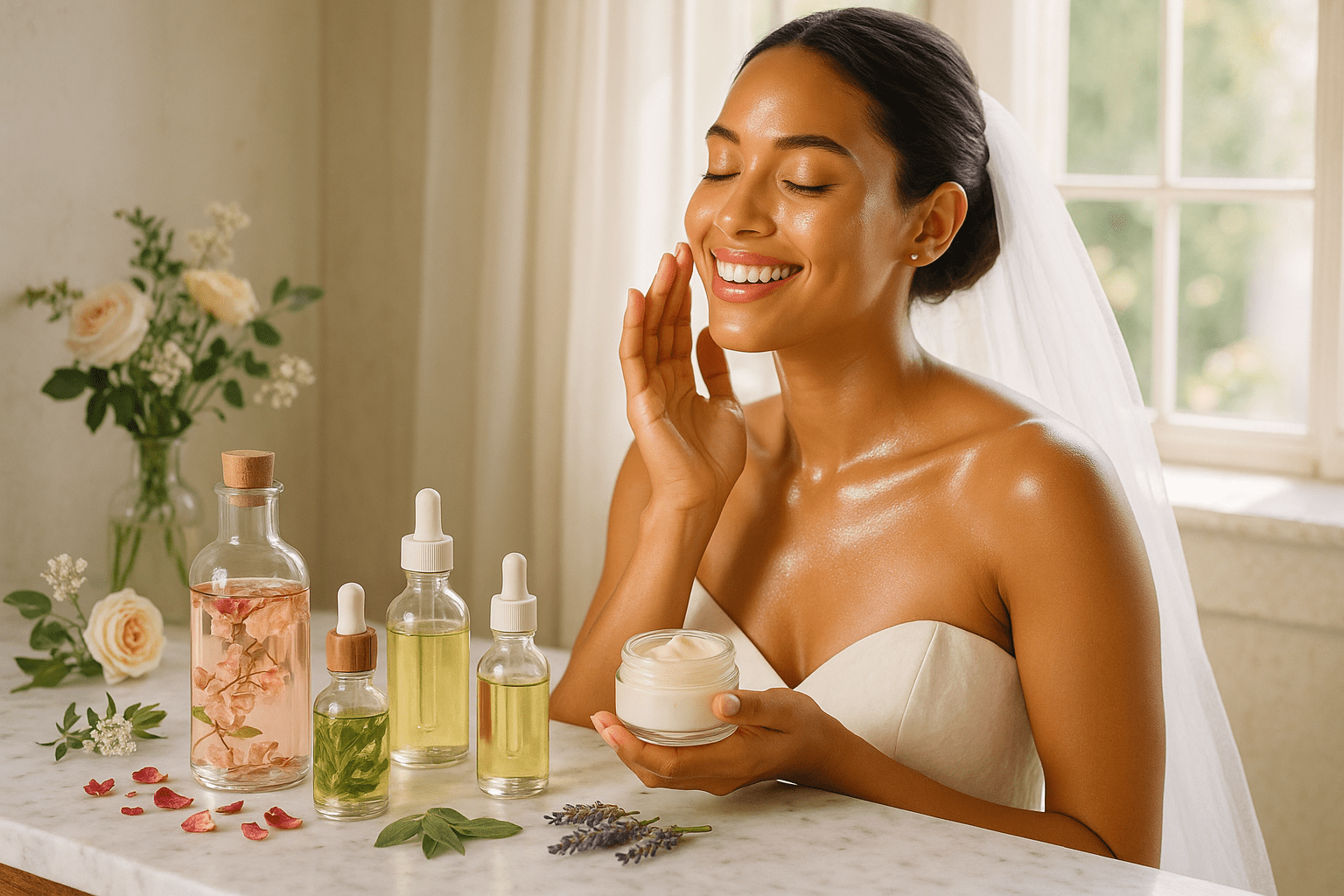
Summer Oily Skin Care: Causes, Myths, Ingredients & Shine-Free Tips
How to Manage Oily Skin in Summer for a Balanced, Radiant Glow
Summer brings warmth and sunshine, but for those with oily skin, it can mean a battle against excess shine and breakouts. This blog explores key factors contributing to oily skin during the summer months and offers essential tips to maintain a balanced complexion. From understanding how humidity affects your skin to debunking common myths, you'll learn how to conquer oily skin and embrace a radiant glow all summer long.
Why Oily Skin Gets Worse in Summer
What Factors Contribute to Oily Skin in Summer?
As the temperatures rise and the sun beats down, many individuals find themselves struggling with an unwelcome skin companion – oily skin. This common summer woe can be attributed to a complex interplay of various factors that impact the skin's natural oil production.
Understanding the Skin's Sebum Production
- Sebum, the natural oil produced by the skin's sebaceous glands, plays a crucial role in maintaining the skin's health and hydration.
- During the summer months, the skin's sebum production tends to increase, leading to a shiny, greasy appearance.
- This heightened oil production is the body's natural response to combat the drying effects of sun exposure and hot, humid weather.
Environmental Factors and Oily Skin
- Exposure to high temperatures and direct sunlight can stimulate the sebaceous glands, causing them to produce more sebum.
- Humidity levels also play a significant role, as increased moisture in the air can trigger the skin to produce more oil to maintain its natural balance.
- Certain environmental pollutants and irritants can further exacerbate the issue, leading to clogged pores and a more pronounced oily appearance.
Hormonal Influences on Skin Oil Production
- Hormonal fluctuations, particularly during certain stages of the menstrual cycle or adolescence, can contribute to increased sebum production.
- The body's natural response to these hormonal changes can result in a surge of oil secretion, leading to the characteristic oily skin associated with these life stages.
How Does Humidity Affect Skin Oil Production?
As the summer heat intensifies, the role of humidity in influencing skin oil production becomes increasingly significant. Understanding this dynamic can help individuals better manage their oily skin woes.
The Impact of Humidity on Sebum Secretion
- High humidity levels can trigger the skin's sebaceous glands to produce more sebum, as the body's natural response to maintain skin hydration.
- In humid environments, the skin's natural oils have a harder time evaporating, leading to a buildup of excess oil on the surface of the skin.
- This accumulation of sebum can clog pores, leading to the development of blackheads, whiteheads, and other blemishes associated with oily skin.
Variation in Skin Types and Humidity Response
- Individuals with naturally oily skin tend to be more susceptible to the effects of humidity, as their sebaceous glands are already primed for increased oil production.
- Those with combination or dry skin may also experience an uptick in oil secretion during periods of high humidity, as the skin tries to compensate for the environmental moisture loss.
- Factors such as genetics, age, and hormonal fluctuations can further influence an individual's sensitivity to humidity-related oil production.
Strategies for Managing Oily Skin in Humid Conditions
- Incorporating oil-blotting sheets or mattifying powders into one's daily routine can help absorb excess surface oil and maintain a matte appearance.
- Gentle, oil-free cleansers and moisturizers specifically formulated for oily skin can help regulate the skin's natural oil balance.
- Exfoliating regularly to remove dead skin cells and unclog pores can also be beneficial in managing the effects of humidity on oily skin.
What Are the Common Myths About Oily Skin?
Navigating the landscape of oily skin can be a challenging task, as numerous myths and misconceptions often cloud the understanding of this skin type. Dispelling these myths is crucial for individuals to adopt effective strategies in managing their oily skin concerns.
Myth: Oily Skin Does Not Need Moisturizer
- Many believe that individuals with oily skin should avoid moisturizers, as they fear it will only exacerbate the problem. However, this is a common misconception.
- Proper moisturization is essential for maintaining the skin's natural balance, even for those with oily complexions.
- Choosing oil-free, non-comedogenic moisturizers can help hydrate the skin without clogging pores or contributing to excessive oil production.
Myth: Frequent Washing Reduces Oiliness
- The belief that washing the face multiple times a day will help control oil production is a prevalent myth.
- Excessive washing can, in fact, strip the skin of its natural oils, leading the sebaceous glands to overcompensate and produce even more sebum.
- Gentle, non-drying cleansers used once or twice a day are generally more effective in managing oily skin without disrupting the skin's natural barrier.
Myth: Oily Skin Ages More Slowly
- Another common misconception is that individuals with oily skin tend to age more slowly due to the natural lubrication of the skin.
- While the increased sebum production may temporarily give the appearance of a youthful, plump complexion, it does not necessarily translate to slower aging.
- Factors such as sun exposure, lifestyle habits, and overall skin health play a more significant role in the aging process than the presence of oily skin alone.
Myth: Oily Skin Is Inherently Unhealthy
- Many people mistakenly equate oily skin with poor skin health or an underlying medical condition.
- In reality, oily skin is a natural skin type, and with the right care and management, it can be healthy and balanced.
- Embracing one's skin type and adopting a tailored skincare routine can help individuals with oily skin maintain a clear, radiant complexion.
By dispelling these common myths and understanding the underlying factors that contribute to oily skin, individuals can approach their skin concerns with a more informed and empowered perspective. With the right strategies and a customized approach, oily skin can be effectively managed, allowing for a confident and comfortable summer glow.
The Ultimate Guide to Radiant Skin: Unlock the Secrets to a Glowing Complexion
Which Ingredients Should You Look For in Products?
When it comes to achieving a radiant, healthy complexion, the ingredients in your skincare products play a crucial role. Navigating the vast array of options can be overwhelming, but fear not! In this segment, we'll delve into the key ingredients you should seek out to nourish and rejuvenate your skin.
Unlock the Power of Natural Wonders
- Vitamin C: This antioxidant powerhouse brightens, reduces the appearance of fine lines and wrinkles, and promotes collagen production for a youthful glow.
- Hyaluronic Acid: A humectant that deeply hydrates the skin, plumping and smoothing the appearance of fine lines.
- Retinol: A derivative of Vitamin A, retinol accelerates cell turnover, minimizes pores, and diminishes the signs of aging.
- Niacinamide: This versatile vitamin helps to even out skin tone, reduce inflammation, and regulate oil production for a balanced, radiant complexion.
How Can You Create an Effective Morning and Night Routine?
Establishing a consistent and tailored skincare routine is the foundation for achieving your skin goals. Whether you're aiming to combat dullness, address blemishes, or maintain a youthful glow, a well-curated morning and night routine is the key to unlocking your skin's full potential.
Unveil Your Radiant Skin with a Personalized Approach
- Start your day with a gentle cleanse to remove any impurities and prepare your skin for the day ahead.
- Incorporate a serum rich in active ingredients to target your specific concerns, such as brightening, hydrating, or anti-aging.
- Don't forget to apply a moisturizer tailored to your skin type, locking in the benefits of your serum and protecting your skin from environmental stressors.
- Complete your morning routine with a broad-spectrum sunscreen to shield your skin from harmful UV rays and prevent premature aging.
- In the evening, cleanse your skin thoroughly to remove the day's buildup of oil, dirt, and makeup.
- Treat your skin with a retinol-infused product to accelerate cell turnover and minimize the appearance of fine lines and wrinkles.
- Finish your night routine with a nourishing moisturizer to replenish and hydrate your skin while you sleep.
What Are the Do's and Don'ts for Oily Skin Care?
Navigating the unique needs of oily skin can be a challenge, but with the right approach, you can achieve a balanced, radiant complexion. From selecting the appropriate products to adopting a skincare routine that addresses excess oil and shine, this segment will guide you through the dos and don'ts of caring for oily skin.
Embrace the Shine-Free Life: Mastering Oily Skin Care
- Do: Choose oil-free, non-comedogenic products that won't clog your pores and exacerbate breakouts.
- Don't: Use harsh, drying cleansers that can strip your skin, leading to increased oil production.
- Do: Incorporate a gentle exfoliating toner or serum to remove dead skin cells and excess oil without over-drying.
- Don't: Over-cleanse or over-exfoliate, as this can disrupt your skin's natural balance and trigger more oil production.
- Do: Invest in a mattifying, oil-absorbing moisturizer to keep your complexion shine-free without sacrificing hydration.
- Don't: Neglect the importance of sunscreen, as it helps to regulate oil production and prevent further damage.
Achieving radiant, healthy skin is a journey, not a destination. By understanding the key ingredients to look for, creating a personalized skincare routine, and addressing the unique needs of oily skin, you'll be well on your way to unlocking your skin's full potential. Remember, your skin is unique, so be patient, listen to your complexion, and embrace the power of self-care. With the right approach, you'll be glowing from the inside out.
The Skin Balancing Act: Mastering Oily Skin Management
How Does Diet Impact Your Skin Oil Levels?
Your diet plays a significant role in determining your skin's oil production. Understanding the connection between what you eat and your skin's oil levels can help you make informed choices to achieve a healthy, balanced complexion.
The Influence of Macronutrients
- Carbohydrates: Consuming a diet high in refined carbohydrates and sugars can contribute to increased oil production and breakouts.
- Fats: Incorporating healthy fats, such as those found in avocados, nuts, and olive oil, can help regulate oil levels and maintain skin's natural barrier.
- Proteins: Ensuring you get adequate protein from lean sources can support skin health and cell turnover.
Micronutrients and Skin Health - Zinc: This mineral plays a crucial role in regulating oil gland activity and reducing inflammation. - Vitamin A: Retinoids derived from vitamin A can help control sebum production and improve skin texture. - Omega-3 Fatty Acids: Found in foods like salmon and walnuts, these healthy fats can help reduce inflammation and redness.
By being mindful of your macronutrient and micronutrient intake, you can optimize your diet to maintain a healthy balance of oil production and achieve a radiant, balanced complexion.
What Lifestyle Habits Can Reduce Oily Skin?
In addition to diet, your daily habits and lifestyle choices can significantly impact your skin's oil levels. Incorporating the following practices can help you manage oily skin effectively.
Stress Management
- Chronic stress can lead to increased cortisol production, which can stimulate oil glands and exacerbate oily skin.
- Engaging in stress-relieving activities, such as meditation, yoga, or regular exercise, can help regulate hormones and minimize excess oil production.
- Practicing effective stress management techniques can contribute to a balanced, healthier complexion.
Cleansing and Exfoliation - Gentle Cleansing: Avoiding harsh, drying cleansers and instead using a mild, oil-free cleanser can help maintain the skin's natural moisture balance. - Regular Exfoliation: Gently exfoliating the skin 1-2 times per week can help remove dead skin cells and unclog pores, preventing excess oil buildup. - Blotting Papers: Carrying oil-absorbing blotting papers can help manage shine throughout the day without over-drying the skin.
By incorporating these lifestyle habits into your routine, you can effectively manage oily skin, minimize shine, and promote a clear, healthy-looking complexion.
Why Are Hydration and Sun Protection Important?
Proper hydration and sun protection are essential for maintaining a balanced, healthy complexion, even for those with oily skin. Understanding their importance can help you achieve a radiant, well-cared-for complexion.
Staying Hydrated
- Drinking adequate water can help regulate oil production and prevent the skin from overcompensating with excess sebum.
- Incorporating hydrating, water-based skincare products can also contribute to a balanced, healthy-looking complexion.
- Dehydration can lead to increased oil production, so staying well-hydrated is crucial for managing oily skin.
The Significance of Sun Protection - UV Exposure: Prolonged sun exposure can stimulate the sebaceous glands, leading to increased oil production and the potential for breakouts. - Skin Damage: Unprotected sun exposure can cause premature aging, wrinkles, and discoloration, even in oily skin types. - Broad-Spectrum SPF: Using a broad-spectrum sunscreen with an SPF of 30 or higher can shield the skin from damaging UV rays and help maintain a balanced complexion.
By prioritizing hydration and consistent sun protection, you can support your skin's natural oil regulation, prevent further damage, and achieve a healthy, radiant glow, even with an oily skin type.
Mastering the art of managing oily skin requires a multifaceted approach that considers diet, lifestyle habits, hydration, and sun protection. By understanding the underlying factors that contribute to excess oil production and implementing a holistic skincare routine, you can achieve a balanced, healthy complexion that radiates confidence and beauty.
Q&A
What causes oily skin during summer?
Oily skin in summer is often caused by increased sebum production, triggered by high temperatures, humidity, and hormonal fluctuations. Environmental factors like pollutants can also exacerbate the condition.
How can humidity affect oily skin?
Humidity can increase oil production by making it harder for natural oils to evaporate from the skin's surface, leading to clogged pores and shine.
Do individuals with oily skin need moisturizers?
Yes, moisturizing is essential for oily skin. Opt for oil-free, non-comedogenic moisturizers to hydrate without clogging pores.
Is it effective to wash your face multiple times a day for oily skin?
No, excessive washing can strip the skin of its natural oils, prompting the sebaceous glands to produce even more oil. Stick to gentle cleansing once or twice a day.
What dietary choices can help manage oily skin?
A diet low in refined sugars and rich in healthy fats, proteins, and micronutrients like zinc and vitamin A can help regulate oil production and support skin health.
Managing oily skin during the summer requires a proactive approach that encompasses understanding environmental influences, choosing the right skincare products, and maintaining a healthy lifestyle. By implementing the strategies discussed, individuals can keep excess oil at bay while achieving a fresh, glowing complexion. Remember, your skin is unique, so tailor your routine to what works best for you, and enjoy the summer without the shine!






